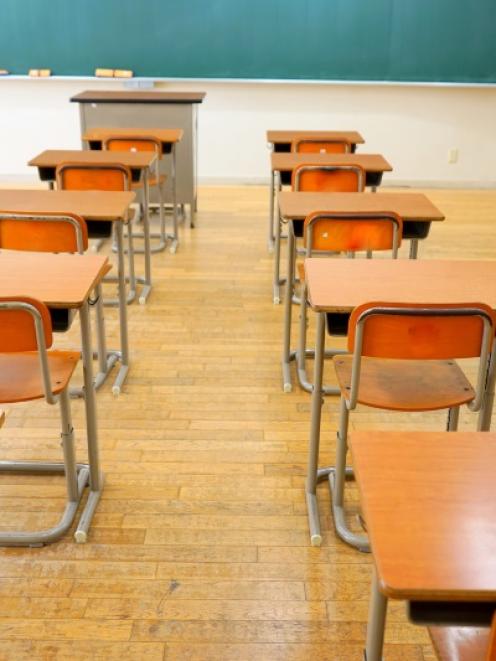
The study by the Organisation for Economic Cooperation and Development (OECD) measures the proportion of the poorest quarter of all children who "beat the odds" and achieve at least the OECD average scores in reading, maths and science at age 15.
More than a third (36.6 per cent) of the poorest quarter of Kiwi kids "beat the odds" by that definition in 2006 - the sixth-highest score of any country.
But that slid to 34.2 per cent in 2009 and plunged to 23.6 per cent in 2012.
Kiwi kids who "beat the odds" recovered slightly to 25.1 per cent in 2015, equalling the OECD average of 25.2 per cent and placing New Zealand 18th out of 35 OECD nations.
But New Zealand's decline of 11.5 percentage points over the whole nine years from 2006 to 2015 was steeper than anywhere except Finland and South Korea, which both fell by about 16 points.
Former Auckland University professor John Hattie, who is now director of the Melbourne Education Research Institute, said the study was "another strong message for New Zealand – wake up".
"The movement downwards of NZ students over the past 15 years in many international measures of the outcomes of schooling should be ringing national alarm bells," he said.
"We are moving down in maths, reading, writing and now we need to worry about our students' resilience."

The data in the study is drawn from the Programme for International Student Assessment (Pisa), which has recorded declining average scores for all NZ 15-year-olds in reading, maths and science since 2000.
"It is not just the students below the average going down, we are also moving backwards for those above average – it is a slide for all," Hattie said.
He said schools needed to set higher expectations for all their students and measure how much each student progressed each year, not just how many achieved standards.
"New Zealand is going through an angst over national standards, and maybe it was not the best way to achieve them," he said.
"I was a fan of them to solve the problem of expectations, but we need to move the debate away from achievement to growth."
He said NZ schools streamed students into ability-based classes more than almost any other OECD country, "locking" low-performing students into classes where they were not challenged to do better.
Briar Lipson, a former British maths teacher and assistant principal who is now a researcher for the NZ Initiative think-tank, said the flexible structure of the National Certificate of Educational Achievement (NCEA) allowed too many students to pass without basic English and maths knowledge over the nine years of the study.
"This is the period when NCEA's negative unintended consequences began to set in," she said.
She said the wide range of topics that could count towards NCEA was "at the expense of a core curriculum that all students are expected to master".
"It goes hand in hand with low expectations."
The Tertiary Education Commission found in 2014 that only about half of all students with NCEA Level 1, and 60 per cent with Level 2, actually had the claimed literacy and numeracy levels as measured by adult tests.
The OECD study found that low-income students did best internationally in schools with strong discipline, low truancy and more extra-curricular activities.
New Zealand has a high truancy rate, with only 67 per cent of students attending school at least 90 per cent of the time in 2016 compared with 89 per cent in England. Truancy was a significant factor affecting low-income students' performance in New Zealand.
Strong discipline was measured by students saying most students listen to what the teacher says, there is minimal noise and disorder, the teacher doesn't have to wait for students to quieten down, students can work well and start working quickly when a class begins.
However, differences in discipline between schools was not a significant factor affecting low-income students' performance in New Zealand.
The study found that New Zealand was also extremely unusual in showing zero differences in low-income children's performance between schools, after allowing for other differences.
The wider Pisa study found that New Zealand had one of the lowest differences in achievement between schools, but a bigger difference within schools than in any other OECD nation.











